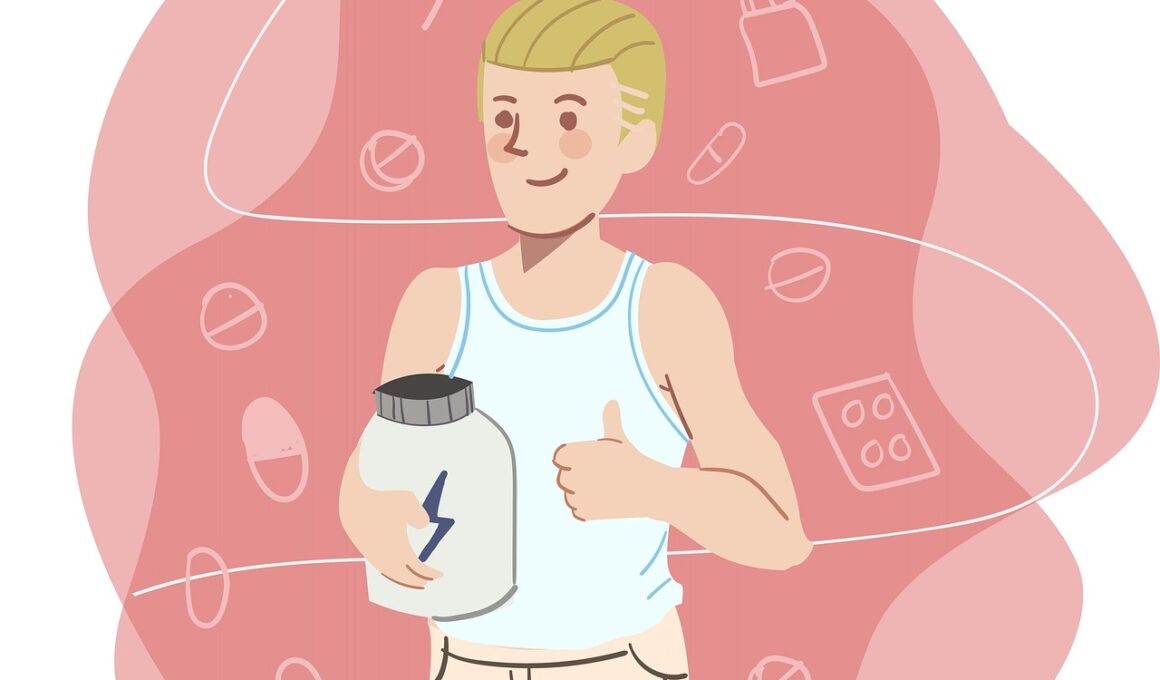How to Use Nutrition to Manage Inflammation After Sports Injuries
Sports injuries can lead to inflammation, which may hinder recovery and performance. Nutrition plays a crucial role in managing inflammation, enabling athletes to heal faster and return to their desired activity levels. To effectively combat inflammation, focus on consuming anti-inflammatory foods rich in antioxidants, omega-3 fatty acids, and vitamins. For instance, fruits like berries, vegetables such as kale, and healthy fats from sources like avocados can positively impact the inflammatory response. Additionally, incorporating lean proteins helps the body repair tissues more efficiently. Moreover, staying hydrated is essential for flushing out toxins and supporting cellular functions. Athletes should prioritize fluids that are high in electrolytes to maintain balance during recovery. Some drinks, such as coconut water, not only replenish potassium but also help reduce inflammation. Understanding which foods to include can make a significant difference in recovery outcomes. Athletes should keep a close eye on their diet as they begin post-injury training. This attentiveness aids in optimizing performance while minimizing discomfort due to inflammation. Individuals experiencing prolonged pain must consult healthcare providers to address underlying issues.
Another crucial aspect involves the timing of nutrient intake around workouts and recovery periods. Consuming a balanced meal rich in protein and carbohydrates post-exercise can help replenish glycogen stores while promoting muscle repair. Preparing meals ahead of time ensures that nutritious options are readily available even during busy periods. Additionally, consider consuming a snack rich in antioxidants before training sessions to provide extra anti-inflammatory support. Foods such as walnuts, chia seeds, and pumpkin seeds can offer required nutrients essential for recovery. Including supplements, like turmeric or ginger, can also help in curbing inflammation effectively due to their potent anti-inflammatory properties. Athletes should consider consulting with nutritionists to create personalized meal plans tailored to their specific needs. This tailored approach helps maintain optimal body weight while ensuring the digestive system remains well-supported, creating a focus on overall wellness. It is also beneficial to track food intake using various apps focused on nutrition. This not only facilitates monitoring progress but also allows individuals to understand the relationship between food consumption, performance, and recovery rates.
Key Nutrients for Inflammation Management
Key nutrients essential for inflammation management include omega-3 fatty acids, antioxidants, vitamins A, C, E, and minerals such as zinc and magnesium. Omega-3 fatty acids found in fish, chia seeds, and flaxseeds offer anti-inflammatory effects. They can reduce the production of inflammatory molecules, allowing for decreased swelling. Antioxidant-rich foods, including dark chocolate and various fruits, help neutralize free radicals that can exacerbate inflammation. Vitamins play an important role in maintaining immune health and tissue repair. Additionally, zinc contributes to immune function and collagen synthesis, which is vital for healing tissues. Magnesium has also gained recognition for its role in muscle relaxation and recovery. Incorporating a colorful variety of fruits and vegetables enhances nutrient diversity and promotes inflammation control within the body. Aim to create meals rich in these nutrients daily, as they provide tangible benefits over time. Cooking methods can also impact nutrient retention, making it prudent to steam, bake, or sauté instead of deep-frying foods. Maintaining an overall balanced diet while focusing on these key nutrients ensures the body is equipped to handle the post-injury recovery process effectively.
A vital habit for athletes recovering from injuries is keeping an eye on their overall diet quality. Limiting processed foods and sugar can drastically reduce inflammation levels. High-glycemic foods, which include white bread and pastries, are known for causing spikes in insulin, contributing to inflammation. Instead, choose whole grains, such as oats and brown rice, as they stabilize blood sugar levels. It’s important to avoid potential dietary triggers, especially when recovery takes longer than expected. Staying informed about which common ingredients may provoke inflammation will help athletes tailor their diets accordingly. Familiarizing oneself with food labels can assist in avoiding artificial additives that could counteract recovery efforts. Monitoring gut health through probiotics and prebiotics is equally important. Fermented foods like yogurt, sauerkraut, and kimchi support a healthy gut microbiome, promoting systemic healing. A nutrient-dense diet combined with mindful food choices will yield significant progress during recovery. Regular check-ins with healthcare professionals help to assess dietary impact on inflammation management, allowing athletes to adjust their strategies as necessary throughout their recovery journey.
Hydration and Inflammation
Staying properly hydrated plays a vital role in managing inflammation after sports injuries. Dehydration can lead to increased pain and delayed recovery, emphasizing the need for proper fluid intake. Water is crucial, but incorporating electrolyte-rich beverages after intense workouts can replenish lost minerals such as potassium and sodium. Optimal hydration aids muscle function, contributes to nutrient transport within the body, and assists with waste elimination. Athletes should aim to drink water consistently throughout the day, rather than only during workouts. Using hydration strategies such as monitoring urine color can also help ensure adequate fluid intake. In addition to water, consider consuming hydrating foods like cucumbers, watermelons, and oranges, which can further support hydration levels. Herbal teas and broths may also aid in fluid balance while offering anti-inflammatory properties. Incorporating these options helps athletes feel better while ensuring their bodies are functioning at peak performance levels. Staying attuned to the body’s signals regarding thirst and hydration needs will contribute to improved results during recovery. This comprehensive approach guarantees that hydration plays its role in effectively managing post-injury inflammation.
It’s essential to remember that firmifying a commitment to wellness includes developing healthy routines that encompass both nutrition and lifestyle factors. Implementing stress management techniques, such as yoga and mindfulness practices, can enhance overall well-being during the healing process. Emotional well-being significantly influences physical recovery rates, and managing stress levels can further support inflammation reduction. Athletes should also aim to get adequate sleep, as restorative sleep allows the body to heal and rejuvenate efficiently. Adopting good sleep hygiene practices will support an optimal environment for quality rest. Nutritional strategies are more effective when combined with healthy lifestyle choices, establishing a holistic approach to recovery. Regular physical activity, like gentle stretching or walking, can also enhance circulation and reduce stiffness without exacerbating the injury. Coordinating support from friends and family during recovery can help increase motivation and accountability in sticking to nutrition plans and exercise regimens. Implementing a well-rounded lifestyle that prioritizes mental and physical health creates a balanced recovery strategy. Collectively, these practices build resilience and foster a better state of wellness for athletes post-injury, ultimately contributing to their journey toward peak athletic performance.
Conclusion and Next Steps
In conclusion, managing inflammation through nutrition is crucial for athletes recovering from sports injuries. Being mindful of food choices, timing of nutrient intake, and overall hydration can have profound effects on speeding up recovery. Incorporating key nutrients and pro-health strategies helps reduce inflammation levels effectively. Engaging with nutritionists or professionals specializing in sports nutrition can optimize individualized plans tailored to athletes’ specific needs. Keeping track of dietary habits allows for an ongoing understanding of food relationships with recovery processes. It’s vital to understand that proper recovery cannot be rushed. Patience is paramount in this journey, allowing the body to heal at its own pace while receiving essential nourishment. Combining nutrition with a well-rounded approach to physical and mental health creates a solid foundation for optimal recovery and performance. As athletes make strides in understanding their nutritional needs, they can better manage their health, paving the way for a successful return to their sports. Ultimately, adopting these practices will enhance not only their recovery but also help build lasting, healthier habits.
View nutrition not merely as an afterthought but as a powerful tool that influences recovery, growth, and sustained athletic performance. Creating a proactive approach focused on inflammation management through nutrition will benefit athletes significantly. Emphasizing the importance of this can lead to developing lifelong habits promoting health and success in sports. Understanding the intricacies of diet and its impact on healing processes allows athletes to make informed decisions. They should feel empowered to prioritize their well-being as they recover, through healthy, intentional nutrition. All in all, the connection between nutrition and injury recovery is profound. Taking actionable steps in managing inflammation with food choices will ultimately narrow the gap between injury and return. Athletes who adhere to these findings will better navigate their recovery journeys and return to the sports they love with greater resilience. Make nutrition a top priority during recovery and a driving force in long-term health success. Looking ahead, adopting these principles can provide lasting benefits, contributing to better athletic outcomes in the long run as they enhance overall performance capabilities while minimizing injury risks.


